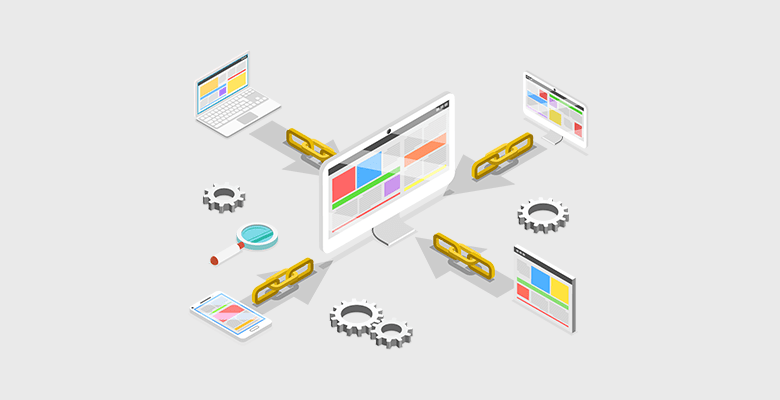How to Buy Backlinks Without Getting Penalized by Google: A Complete Guide

Backlinks remain one of the most powerful ranking factors in SEO. Google considers them as “votes of confidence”—the more quality links pointing to your site, the higher your authority in search rankings. However, not all backlinks are created equal. If done incorrectly, buying backlinks can lead to penalties, lost rankings, or even deindexing.
So, does that mean you should never buy backlinks? Not necessarily. Many high-ranking websites purchase backlinks strategically without violating Google’s guidelines. The key is knowing where to buy them, what types to avoid, and how to ensure a natural link profile.
In this guide, we’ll break down:
- Why backlinks still matter in SEO
- The right way to buy backlinks without penalties
- What types of backlinks to avoid
- How to ensure Google-safe link-building
If you’re looking for high-quality, safe backlinks that follow best practices, LinksPedia offers premium, white-hat link-building solutions that ensure your SEO success without risking penalties.
Why Are Backlinks Still Important for SEO?
Google’s algorithm has evolved, but backlinks remain a key ranking factor. When authoritative websites link to your content, it signals trust and credibility to search engines. Websites with strong backlink profiles tend to rank higher and get more organic traffic.
Here’s why backlinks are still crucial in 2025:
- Improve Search Rankings – Websites with more high-quality backlinks consistently rank better.
- Increase Domain Authority – High-authority backlinks boost a site’s credibility, making it easier to rank for competitive keywords.
- Drive Referral Traffic – Links from popular websites bring targeted visitors who are genuinely interested in your content.
- Faster Indexing by Search Engines – Backlinks help Google discover and crawl new pages faster.
However, buying backlinks can be risky. If you purchase low-quality, spammy links, you could trigger a manual penalty from Google. That’s why it’s critical to follow best practices and buy backlinks from trusted sources.
The Right Way to Buy Backlinks Without Getting Penalized
Many SEOs and website owners buy backlinks to accelerate rankings, but only a few do it safely. Here’s how to buy high-quality backlinks while staying compliant with SEO best practices.
1. Buy from a Trusted Backlink Provider
Not all backlink marketplaces are reliable. Some sell PBN links, spammy links, or automated backlinks that can hurt your rankings. A reputable provider will:
- Offer high-DA (Domain Authority) and niche-relevant links
- Provide manual outreach and placement instead of automated link building
- Avoid link farms and PBNs
- Offer editorial, contextual backlinks, not sidebar or footer links
Where to buy high-quality backlinks?
- LinksPedia – A trusted platform offering authoritative, niche-specific backlinks that improve rankings.
- Guest Post Marketplaces – Sites where you can publish guest posts on high-DA websites with a backlink to your site.
- Influencer & Blogger Outreach – Collaborating with bloggers in your industry to get contextual backlinks.
2. Use a Natural Anchor Text Strategy
Anchor text is the clickable text in a hyperlink. Google’s algorithm can flag unnatural patterns, so it’s important to diversify anchor texts.
Types of anchor texts to use:
- Branded: Example – LinksPedia
- Keyword-Based: Example – buy backlinks cheap, high authority backlinks
- Long-Tail Phrases: Example – where to buy backlinks safely
Avoid:
- Overusing exact-match keywords
- Buying backlinks with the same anchor text on multiple sites
- Using spammy or irrelevant anchor texts
A diverse and natural anchor text strategy helps ensure that your backlink profile looks organic.
3. Focus on Contextual Backlinks (Avoid Sidebar & Footer Links)
Not all backlinks hold the same value. Google gives more weight to contextual backlinks—those naturally placed within the main content of an article.
Good Example:
A digital marketing blog publishes a guest post about “SEO Strategies” and includes a relevant backlink to your article on SEO best practices.
Bad Example:
A low-quality site places your link in the footer section with 50+ other links.
Best sources for contextual backlinks:
- Guest posting on high-DA websites
- Influencer or blogger mentions
- High-authority niche blogs
- Editorial links in news articles
Google rewards natural-looking links, so always focus on relevance and context.
What Types of Backlinks to Avoid?
Not all backlinks are beneficial. Some can harm your rankings instead of helping them. Avoid:
- PBNs (Private Blog Networks) – Google actively penalizes PBNs, as they are artificial link schemes.
- Spammy Link Farms – Websites that sell bulk backlinks with no niche relevance or editorial control.
- Automated & AI-Generated Links – AI tools that generate thousands of backlinks overnight can get your site penalized.
- Cheap, Low-Quality Backlinks – If a provider promises hundreds of backlinks for $10, they’re likely spammy, low-DA links.
- Blog Comment Spam & Forum Profiles – Posting random links in comments or forum signatures won’t help rankings.
A single low-quality link won’t hurt much, but hundreds of spammy links can trigger a Google penalty. Always prioritize quality over quantity.
How to Buy Backlinks and Stay Google-Safe
Buying backlinks the wrong way can lead to penalties, but following SEO-safe practices ensures that your investment helps rather than harms.
1. Buy from High-Authority, Relevant Sites
- Avoid generic backlinks; always choose niche-relevant links.
- Focus on editorial backlinks from trusted websites.
2. Monitor Your Backlink Profile
- Use Ahrefs, Moz, or SEMrush to track new backlinks.
- Disavow toxic links using Google’s Disavow Tool.
3. Prioritize Manual Outreach & Guest Posts
- Guest posting is one of the safest ways to acquire high-quality backlinks.
- Collaborate with bloggers and influencers for editorial mentions.
4. Maintain a Diverse Link-Building Strategy
- Mix guest post backlinks, natural mentions, and business citations.
- Combine bought backlinks with organic link-building efforts.
Following these SEO-safe practices ensures long-term success in backlink building.
Conclusion
Buying backlinks can be a powerful strategy if done correctly. By choosing trusted providers, prioritizing high-quality links, and following best SEO practices, you can safely improve rankings without risking penalties.
The key takeaway? Google values natural, relevant backlinks—so always focus on quality over quantity.
If you’re looking for high-quality backlinks from authoritative websites, LinksPedia offers premium, SEO-safe backlinks that improve rankings without penalties. Additionally, for those aiming to advance their careers with certifications, Exam Questions provides expert-designed practice exams and study resources to help you succeed.





